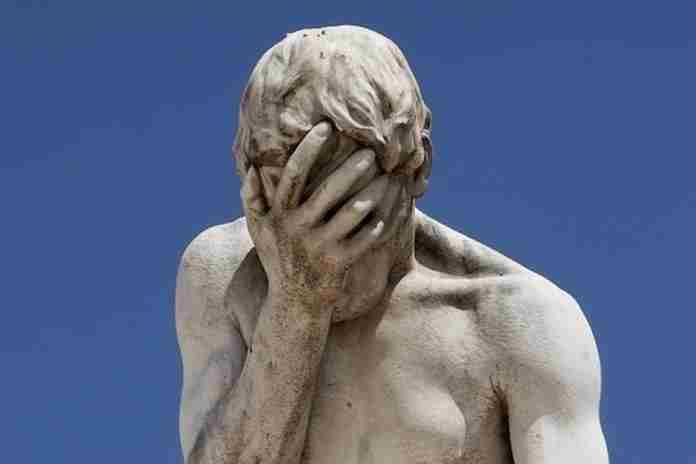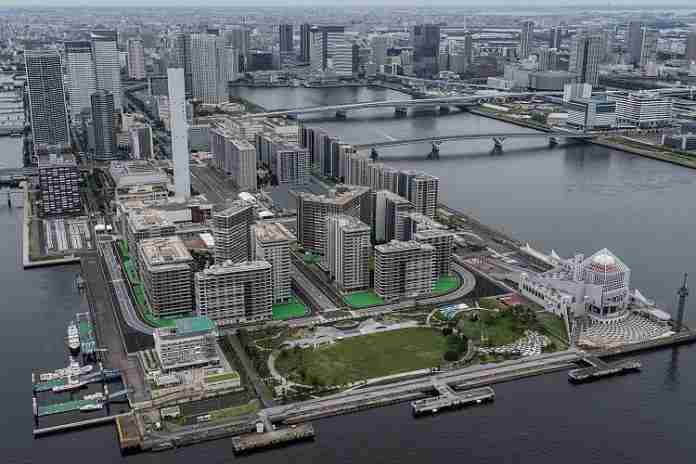(★ Friends: Thank you to our 32 donors, who have covered 40% of our new bill for server and support costs. If you enjoy the coverage, please donate here. Your enthusiasm is why this site continues. Thank you. ★)
(For our Highlights of the weekend’s top competitions, click here)
The Olympic Games in Tokyo is almost here, with just 11 days before the Opening Ceremony, to be held in a spectator-free Olympic Stadium.
After the mayhem attending Sunday’s UEFA Euro 2020 final in and around Wembley Stadium in London, perhaps that’s the right call regardless of the coronavirus situation.
In case you missed it, the violence started prior to the 8 p.m. kickoff of the Italy-England final, with “fans” assembling as early as noon in multiple locations in London, some already drunk. A crowd pushed its way past security fencing about two hours prior to the match and some made their way into the stadium. Reuters reported:
“Around two hours before the game, fans burst past stewards and some reached the concourse while bottles were thrown in from outside the perimeter.
“Some security staff were attacked, witnesses told Reuters, and entry to the stadium was halted for over 20 minutes while order was restored at the entrances.”
Some of the “fans” reached the interior of the stadium and took up seats in ticketed sections, leading to confrontations with fans – some with children – who arrived to see the game. Eventually, the chaos gave way to some football.
The game itself was a classic, with England’s Luke Shaw scoring in the second minute and Italy tying the game in the 67th on a Leonardo Bonucci goal. After extra time, the match was decided by penalty kicks, with England up 2-1, but then missing three in a row and Italy winning, 3-2. Italian keeper Gianluigi Donnarumma was named the Player of the Tournament.
But then more mayhem. In all, London police said 49 arrests were made and 19 officers were injured at Wembley Stadium, with a limited crowd of 67,000 in attendance. Riot police came to ensure order at Trafalgar Square, Piccadilly Circus and Leicester Square before and after the match.
There were reports of random attacks on trains, and widely-condemned social-media abuse against Black players Bukayo Saka, Marcus Rashford and Jadon Sancho, who missed their penalty attempts.
The head of the Football Association, Prince William, said:
“I am sickened by the racist abuse aimed at England players after last night’s match. It is totally unacceptable that players have to endure this abhorrent behaviour. It must stop now and all those involved should be held accountable.”
The Daily Mail further noted that “after the game there were more shambolic scenes as Wembley Way was turned into a ‘bombsite’.
“Experts said the police have serious questions to answer about the lack of officers to deal with the violence at Wembley and the West End, that saw mass brawls, bottles thrown and the smashing of shop windows.”
This was not supposed to happen in England today, a country with a horrific history of violence attached to its football clubs in the 1970s and 1980s that reached its zenith in the Heysel Stadium disaster in Brussels in 1985 before the European Cup final between England’s Liverpool and Italy’s Juventus. Liverpool “supporters” broke down a fence separating the fan bases and the ensuing riot saw 39 killed and more than 600 injured. Police arrested 34 and 14 “fans” were later convicted of manslaughter. UEFA banned English clubs from European competition for five years, and Liverpool for six years.
The situation in Italy was also bad, following its triumph and first European title since 1968. Reports confirmed:
● A man crashed his car and died in Sicily while rushing to join celebrations in downtown Caltagirone;
● In Milan, 15 people were hurt during post-match “partying” and one man blew three fingers off of his hand when a firework exploded;
● There was a report of a killing near the southern Italian town of Foggia, where an assassin shot his victim in a celebrating crowd and then drove away on a motorbike.
This is how sport brings us together?
Bonucci, who scored the tying goal, didn’t help in his post-match comments:
“We are just enjoying seeing 58,000 people leaving even before the trophy presentation, it was something which really delighted us. The trophy now is coming to Rome.
“They thought it was staying here in London, and they’re unhappy. I feel bad for them, but once again Italy has given them a lesson.”
The game drew a huge television audience in Britain, with a peak of 30.95 million viewers and an average audience of 29.85 million throughout. That’s the largest audience since the funeral of Princess Diana back in 1997. In Italy, the average audience of 18 million represents a 73.7% share, meaning nearly three-quarters of all televisions that were on in the country were tuned to the match.
The vast majority of those viewers caused no violence. But there was still plenty of mayhem to go around.
Nor was Sunday’s final the only incident during the tournament. On Friday, UEFA’s Control Ethics and Disciplinary Body issued a sanction against the Hungarian Football Federation for “discriminatory behaviour of supporters” at matches held in Budapest on 15 and 19 June and at the Germany-Hungary match in Munich on 23 June:
“- To order the Hungarian Football Federation to play its next three (3) UEFA competition matches as host association behind closed doors, the third of which being suspended for a probationary period of two (2) years as from the date of the decision, for the discriminatory behaviour of its supporters. The Hungarian Football Federation has also been fined €100,000.
“- To order the Hungarian Football Federation to implement the following directive in the above-mentioned matches in which it will play as host association: to display a banner with the wording “#EqualGame”, with the UEFA logo on it.”
The response of Hungary’s Foreign Minister Peter Szijjarto on Facebook was “The committee that makes a decision like that is a pitiful and cowardly body. They should be ashamed of themselves.”
This is sport contributing to unity? Solidarity? Tolerance?
No. But it has been with us for a long time, in many places. Even in “laid-back” Los Angeles, 76 people were arrested, 30 buildings were damaged and eight police officers injured in and around a crowd of about 1,000 near Staples Center after the Lakers won the 2020 NBA title last October 11.
Japan is expected to do well at the Tokyo Games, and many of its huge, 582-member team are sad that their home fans will not be able to cheer them on. Perhaps Tokyo is doing even more of a service to sport that already realized by completing a first-of-its kind experiment in hosting a 33-sport event that may be devoid of fans, but also of mayhem and riots.
Rich Perelman
Editor
You can receive our exclusive TSX Report by e-mail by clicking here. You can also refer a friend by clicking here, and can donate here to keep this site going.
For our 649-event International Sports Calendar for 2021 and beyond, by date and by sport, click here!

























